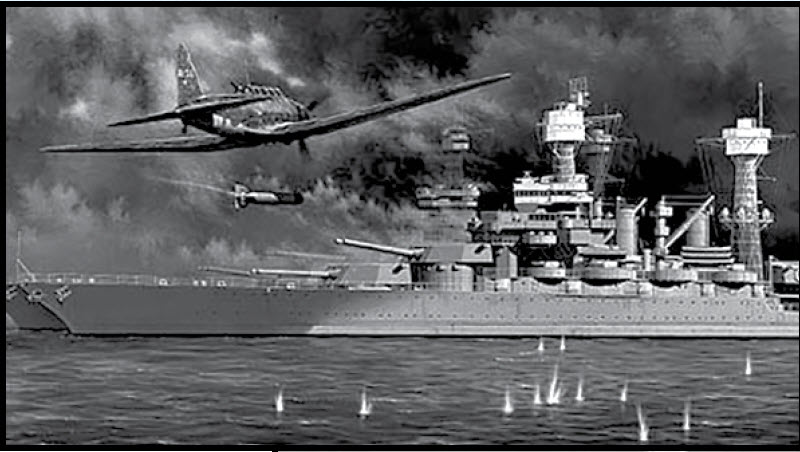“A Date Which Will Live in Infamy”
 By: Wanda Campbell
By: Wanda Campbell
President Franklin D. Roosevelt called December 7, 1941, “a date which will live in infamy.” On that day, Japanese planes attacked the United States Naval Base at Pearl Harbor, Hawaii Territory. (Hawaii would become a state in 1959). The bombing killed more than 2,300 Americans. It completely destroyed the American battleship U.S.S. Arizona and capsized the U.S.S. Oklahoma. The attack sank or beached a total of twelve ships and damaged nine others, with 160 aircraft destroyed and 150 others damaged. The attack took the country by surprise, especially the ill-prepared Pearl Harbor base.

America sided with Britain, France, and the Soviet Union against Germany, Italy, and Japan. The loss of lives in this war was staggering. The European part of the war ended with Germany’s surrender in May 1945. Japan surrendered in September 1945. Information about World War II is available at the Alabama Veterans Museum on Pryor Street.
According to Dictionary.com, infamy means the state of being well known for some bad quality or deed. With the passing of President George H.W. Bush, we are reminded that the generation that remembers best and that was impacted the most by this event is no longer here to remind us of it.
In 1941, everyone was sure it could not happen again. And, yet, it did. Only 60 years later, on September 11, 2001, Al Qaeda terrorists aboard three hijacked passenger planes carried out coordinated suicide attacks against the World Trade Center in New York City and the Pentagon in Washington, D.C., killing everyone on board the planes and nearly 3,000 people on the ground. A fourth plane crashed into a Pennsylvania field, killing all on board, after passengers and crew attempted to regain control from the hijackers.

In my lifetime, the United States has been involved in the Korean War (June 25, 1950 – July 27, 1953), allowing the Berlin Wall (Aug 12, 1961), the Viet Nam War (Nov 1, 1955 – Apr 30, 1975), the invasion of Grenada (Oct 25, 1983 – Dec 15, 1983), the first Gulf War / Operation Desert Shield (1990-1991), Bosnia/Herzegovina / Operation Provide Promise (1992-1996), Afghanistan / Operation Enduring Freedom (2001 – 2014), and Iraq / Operation Iraqi Freedom (2003-2011). Today, the U.S. has ongoing operations in eight hot-spot countries – Libya, Syria, Niger, Yemen, Iraq, Somalia, Afghanistan, and the Philippines.
As we come together with our families this month, let us pray for peace on earth and goodwill toward man. Let us remember to pray for the servicemen and women who are in harm’s way. And let us pray that we can all move forward with goodwill, tolerance, and compassion.
By: Wanda Campbell
Center for Lifelong Learning – 121 South Marion Street, Athens, AL 35611 – 256-233-8262